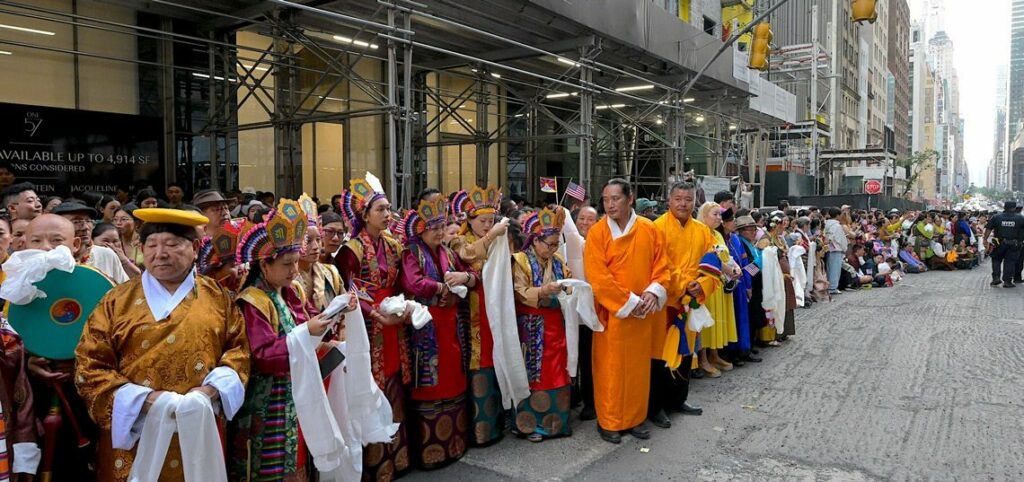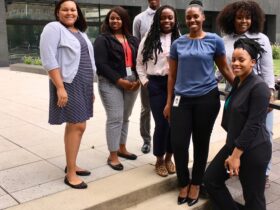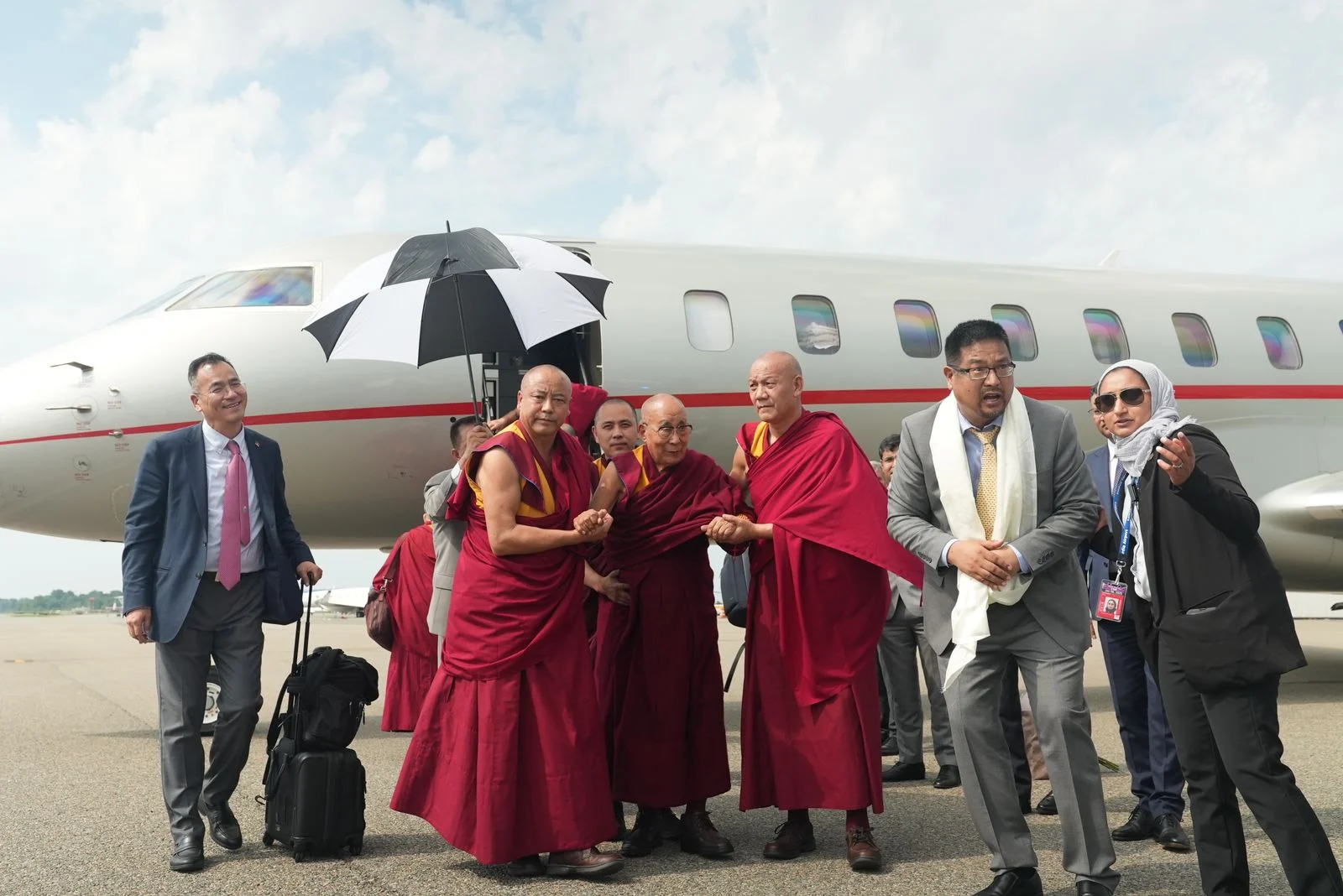The 14th Dalai Lama, Tenzin Gyatso, recently had successful knee replacement surgery on his right knee at the Hospital for Special Surgery during his first trip to the United States since 2017.
He landed at Teterboro Airport in the Meadowlands where he was greeted by Representative Dr. Namgyal Choedup, Chinese Liaison Officer Tsultrim Gyatso from the Office of Tibet-Washington, DC, and other dignitaries, along with an estimated 4,000 followers.
“His Holiness’s personal medical team and office were in constant communication with the surgical and medical staff at HSS. We are grateful for their trust and assistance,” said said David J. Mayman, MD, Chief of the Adult Reconstruction and Joint Replacement Service at HSS. , Chief of the Adult Reconstruction and Joint Replacement Service at HSS.
The Dalai Lama said he was “doing very well” and recuperated in Manhattan, where he also celebrated his 89th birthday in July. The surgery was without complications and in the fourth week post-surgery, the surgical incision was completely healed without any issues, according to reports.
“There may be people trying to confuse you about my health, saying that the Dalai Lama has gone to a hospital and is undergoing treatments, and so on, making my condition sound grave. You don’t need to trust such misinformation,” the exiled leader of Tibetan Buddhism said in his birthday message video. “Basically, I am doing very well, so please relax and be at ease.”
“The physiotherapists have said His Holiness is making good progress every day and are very satisfied with the speed of His Holiness’s improvement. His Holiness’s overall health status is stable and very satisfactory,” according to his personal physicians Dr. Tsetan D Sadutshang and Dr. Tsewang Tamdin.
The Nobel Peace Prize laureate recovered at The Park Hyatt Hotel in Midtown Manhattan, between 6th and 7th avenues and 57th and 58th streets, directly across from the Russian Tea Room and Carnegie Hall. Devotees wearing traditional Tibetan garb and clutching prayer beads or prayer wheels gathered outside the hotel. There are an estimated 10,000 Tibetans residing in the New York and New Jersey area.

As host to the Dalai Lama, the The Park Hyatt had become a holy site, with hundreds of Tibetans doing the circumambulation, called Kora in Tibetan, which is the act of walking around a sacred object or place in a ritualistic or ceremonial manner. In this case, people walked around the hotel, as one would do around a holy pilgrimage site. A makeshift shrine was built making use of scaffolding near the hotel’s entrance, and adorned with Khatas, white ceremonial scarves.
The exiled spiritual leader of Tibetan Buddhism lives in Dharamshala, in the district of Kangra in Himachal Pradesha, India. Known as “little Tibet,” it’s home to the the Tibetan government-in-exile and the largest Tibetan temple outside of Tibet.
The Dalai Lama, just 23 years old at the time, escaped with his supporters during the Chinese invasion of Tibet in 1959. He is regarded by Beijing as a dangerous separatist.
A charismatic figure who popularized Buddhism internationally, the Dalai Lama won a Nobel Peace Prize in 1989 for keeping the Tibetan cause going in exile.
About HSS
HSS is the world’s leading academic medical center focused on musculoskeletal health. At its core is Hospital for Special Surgery, nationally ranked No. 1 in orthopedics (for the 14th consecutive year), No. 2 in rheumatology by U.S. News & World Report (2023-2024), and the best pediatric orthopedic hospital in NY, NJ and CT by U.S. News & World Report “Best Children’s Hospitals” list (2023-2024).
An affiliate of Weill Cornell Medical College, HSS has a main campus in New York City and facilities in New Jersey, Connecticut and in the Long Island and Westchester County regions of New York State, as well as in Florida.
In addition to patient care, HSS leads the field in research, innovation and education. The HSS Research Institute comprises 20 laboratories and 300 staff members focused on leading the advancement of musculoskeletal health through prevention of degeneration, tissue repair and tissue regeneration. In addition, more than 200 HSS clinical investigators are working to improve patient outcomes through better ways to prevent, diagnose, and treat orthopedic, rheumatic and musculoskeletal diseases.
The HSS Innovation Institute works to realize the potential of new drugs, therapeutics and devices. The HSS Education Institute is a trusted leader in advancing musculoskeletal knowledge and research for physicians, nurses, allied health professionals, academic trainees, and consumers in more than 165 countries. The institution is collaborating with medical centers and other organizations to advance the quality and value of musculoskeletal care and to make world-class HSS care more widely accessible nationally and internationally.












